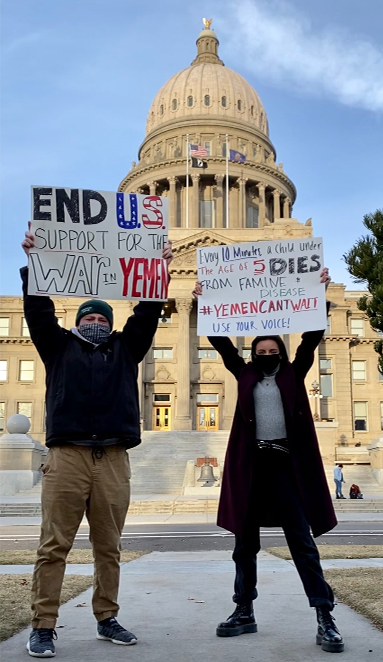
Grassroots mobilization has led the Biden administration to pledge to end the war in Yemen; further activism is needed to make him follow through on his promise and to pressure Saudi Arabia to end its blockade
[For updates on the crisis in Yemen, and to take action, follow @theActionCorps on Twitter or visit www.actioncorps.org.]
Six years ago, in the early hours of March 26, 2015, a military coalition led by Saudi Arabia and backed by the United States began a bombing campaign in Yemen.
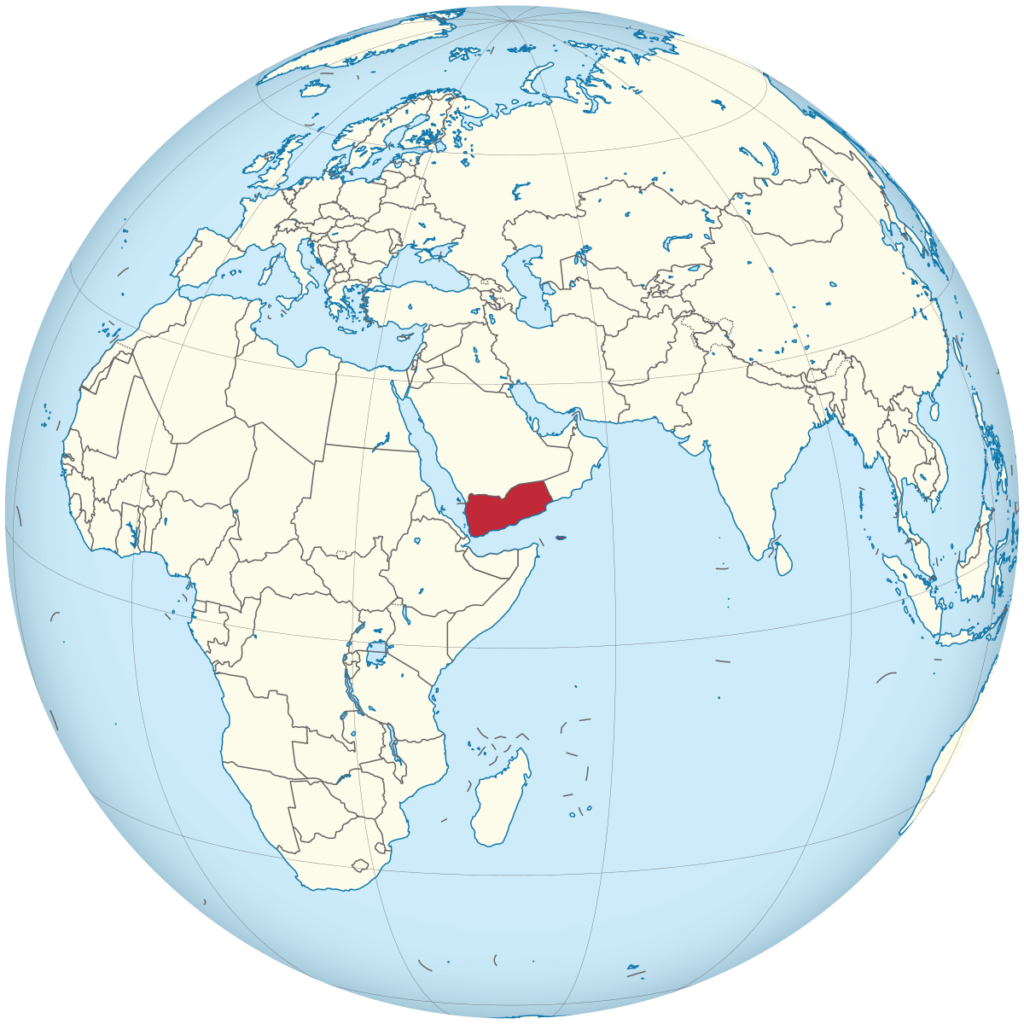
Endorsed by the Obama-Biden administration as a sort of consolation prize to Saudi Arabia after signing the nuclear deal with Iran, the airstrikes and blockade imposed on Yemen have led to what the UN has described as the world’s largest humanitarian crisis.
With Biden now the president, activists have been able to secure important–if vague–promises from him to end U.S. complicity in the war.
The coming weeks present a unique and critical opportunity for holding his administration to the task.
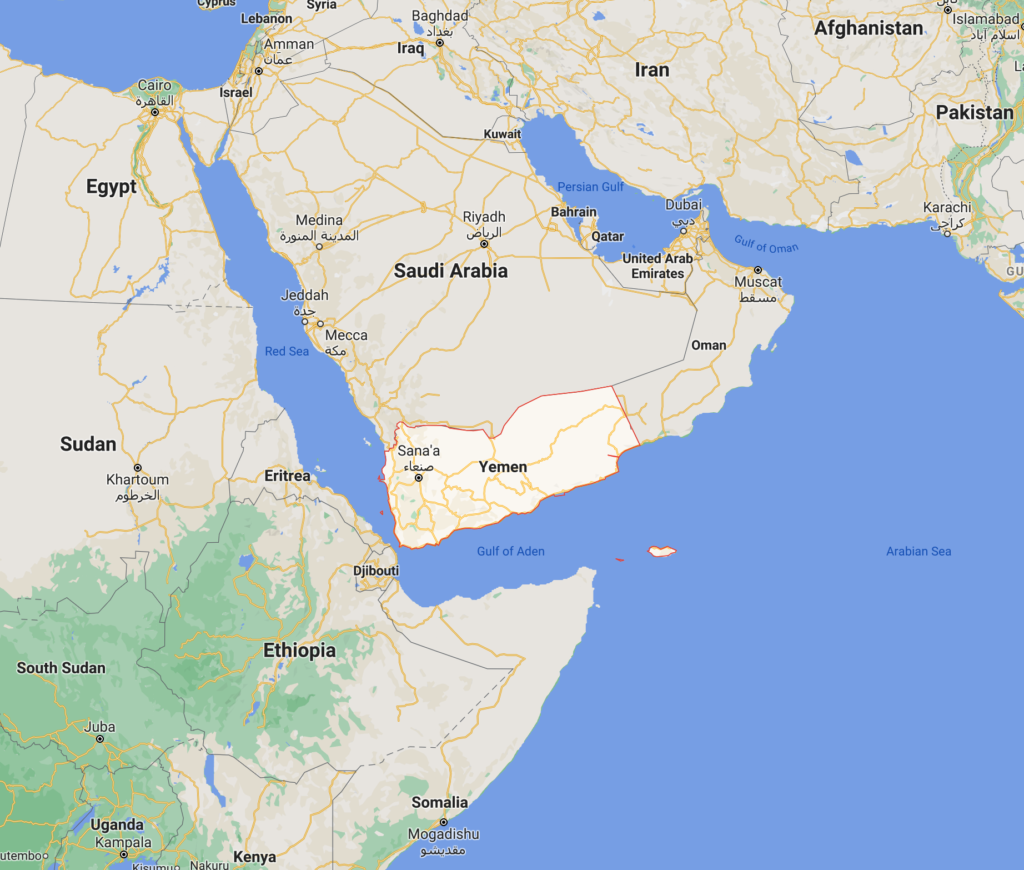
The Saudi-led coalition’s blockade on Yemen has spelled disaster for millions of Yemenis.
Death and Destruction
The war has caused approximately one-quarter of a million direct deaths. Additionally, in 2020 alone, 172,000 people were internally displaced, 79% of whom are women and girls. In total, approximately four million people have been displaced over the last six years.
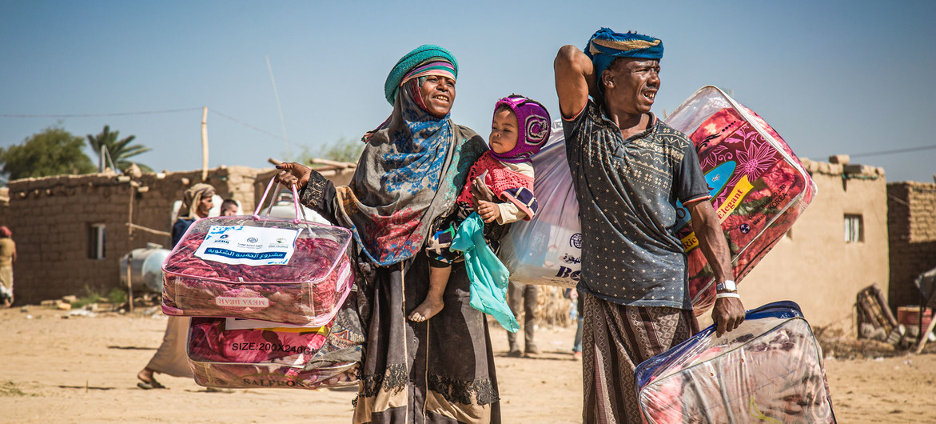
Nearly three-quarters of the population is in need of humanitarian aid, and an estimated 13.5 million Yemenis are in a food emergency. In addition to violence and a looming famine, in 2020 alone, there have been 229,887 cases of cholera, approximately one-fourth of which have been children under five years old.
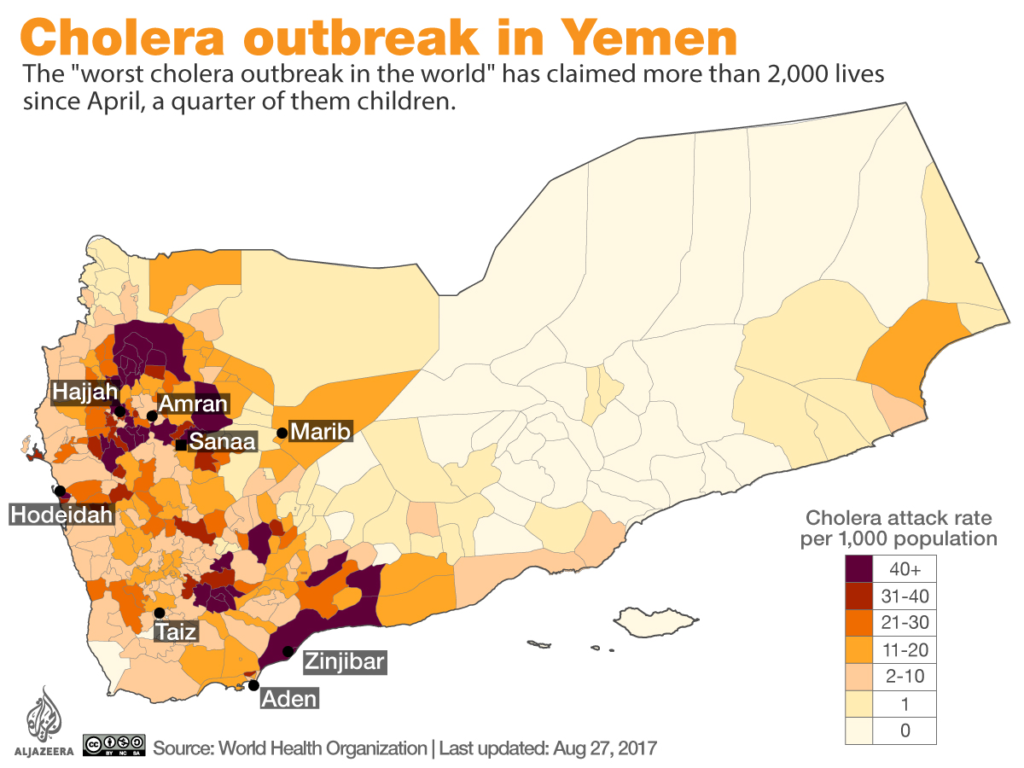
COVID has exacerbated conditions in Yemen: Only half of the healthcare system in Yemen is intact and, out of the country’s 333 districts, 67 have no doctor. Additionally, over the summer, Yemen had one of the highest COVID mortality rates in the world, at 27 percent, which is more than five times the global average.
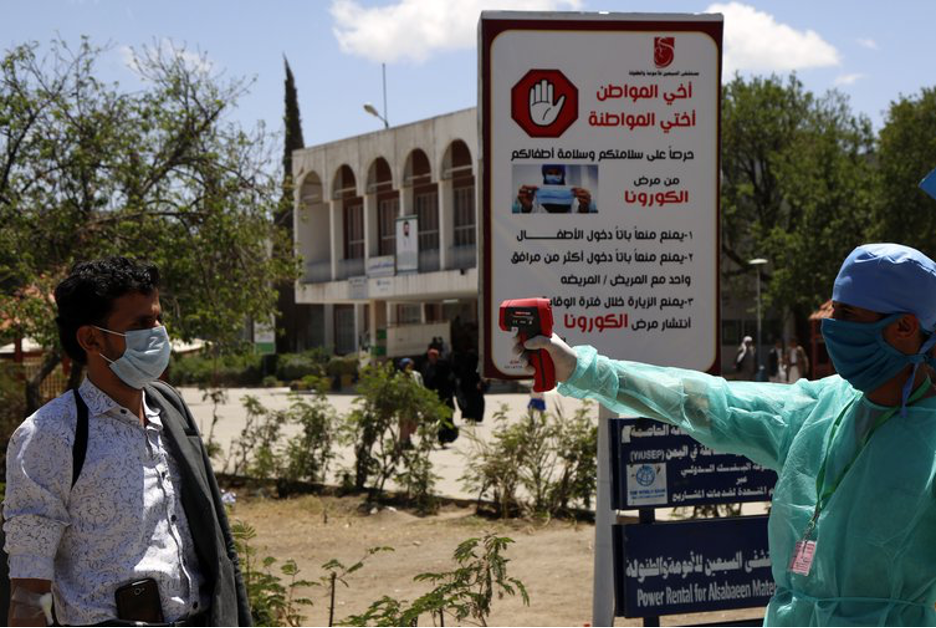
A year ago, as the pandemic was striking Yemen, the Trump administration decided to suspend humanitarian assistance to northern Yemen where the majority of the Yemeni population lives.
On March 11, 2021, the press reported that the Biden administration will restore the assistance to northern Yemen, helping to save lives.
Fewer than two weeks earlier, however, on March 1, 2021, the UN Donor’s conference raised less than half of the UN’s necessary amount to provide services in Yemen. Aid is critical for the survival of thousands of Yemeni people, especially as a result of the pandemic.
Although the U.S. has at various points tried to distance itself from Saudi Arabia and the United Arab Emirates’ (UAE) violent missions against civilians, the Pentagon has exponentially increased its arms sales to Saudi Arabia since the Kingdom began its airstrikes on Yemen.
In the five years before the war, the United States sold approximately $3 billion worth of arms to Saudi Arabia. However, in the first five years of the war (2015-2020), the U.S. agreed to sell to it more than $64.1 billion worth of arms.
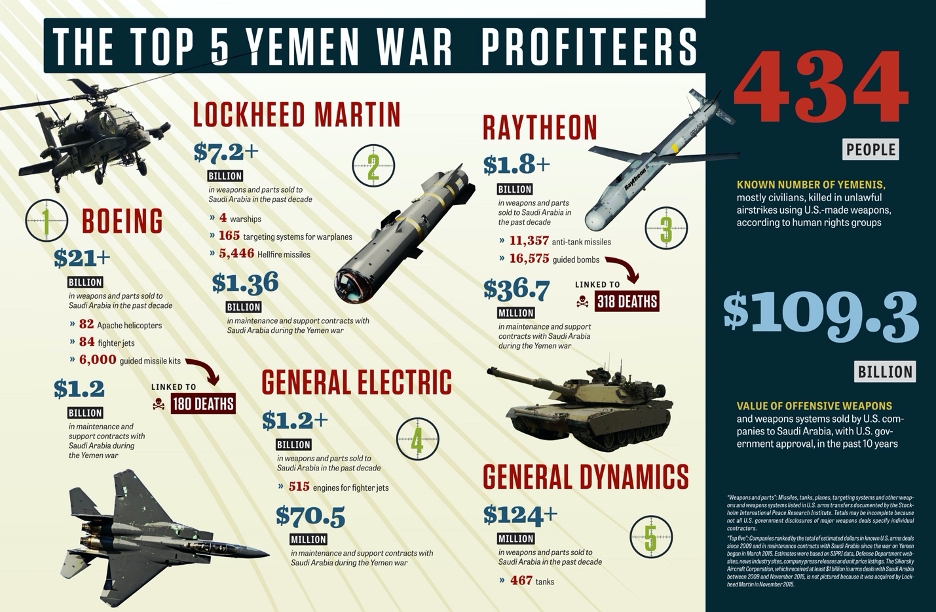
Weapons made in the U.S. have been used in some of the deadliest attacks in Yemen including the bombing of a funeral hall in Sanaa, where at least 140 people were killed and 600 were injured, the bombing of the Mastaba market, where 97 were killed, including 25 children, and the bombing of a school bus, killing 40 children and wounding dozens.
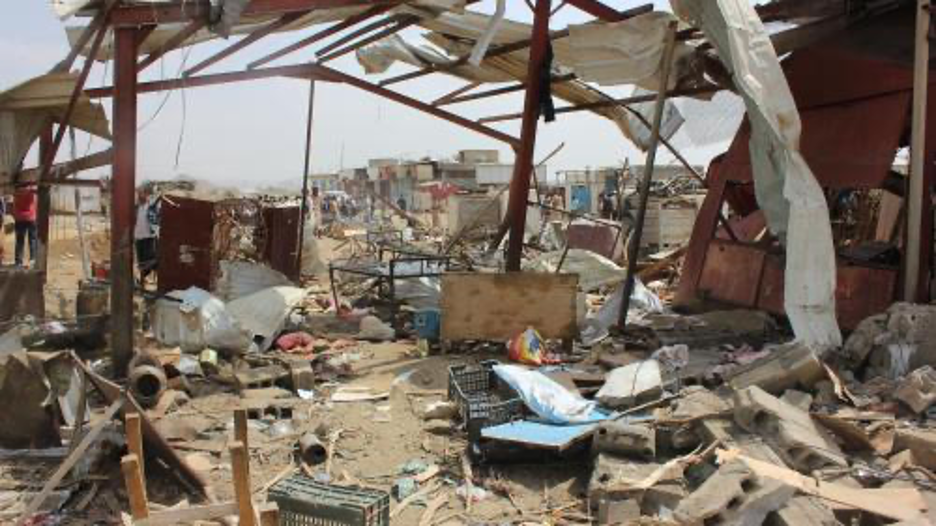
By supplying the Saudi/Emirati-led coalition with these weapons, spare parts, and tactical and intelligence assistance, United States participation in this war has played a key role in perpetuating the humanitarian crisis.
Radhya al-Mutawakel, chairwoman of Mwatana for Human Rights, an organization that records violations from all sides of the war in Yemen, informed CNN that, “in more than one way and during more than one incident, remnants of American weapons have been found at the site of airstrikes that killed civilians.” The U.S. has now enabled this devastation for six years.
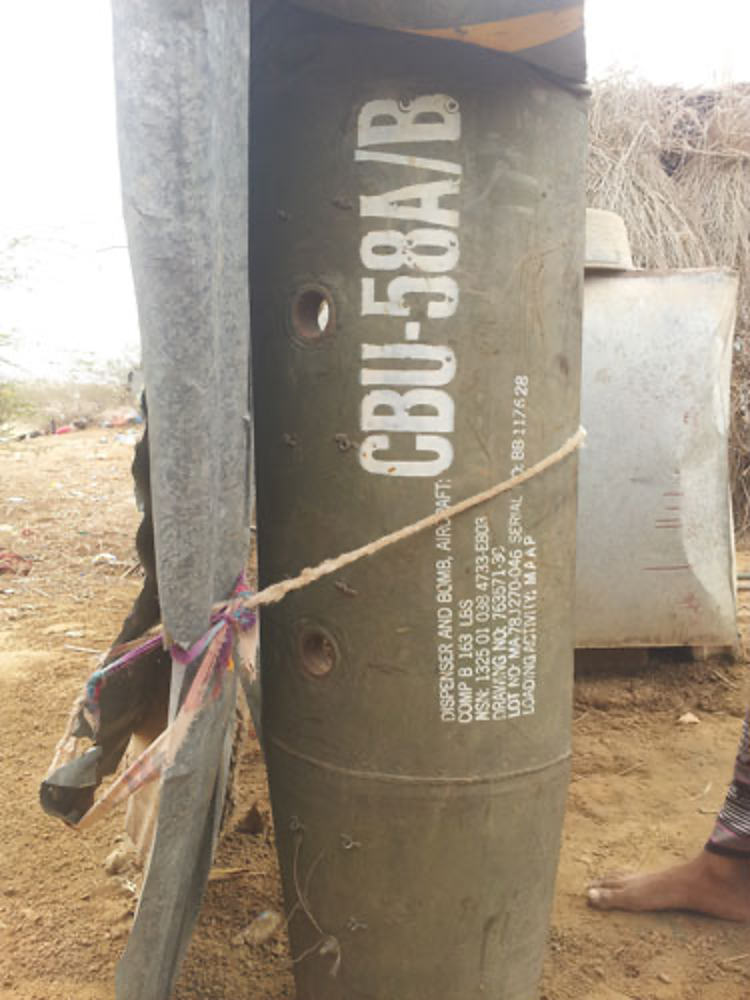
The United States government has long valued its alliance with Saudi Arabia as a strategic hedge against Iran, which has been accused of backing the Houthi rebels. Saudi Arabia is the top importer of U.S. weapons. It also sells the U.S. cheap oil and struck a deal years ago to sell its oil on the foreign market in U.S. dollars, which helps keep the latter as the world’s dominant currency.[1]
Some experts have argued that an additional interest for the U.S. has been control of the strategically located island of Socotra off the coast of Yemen.
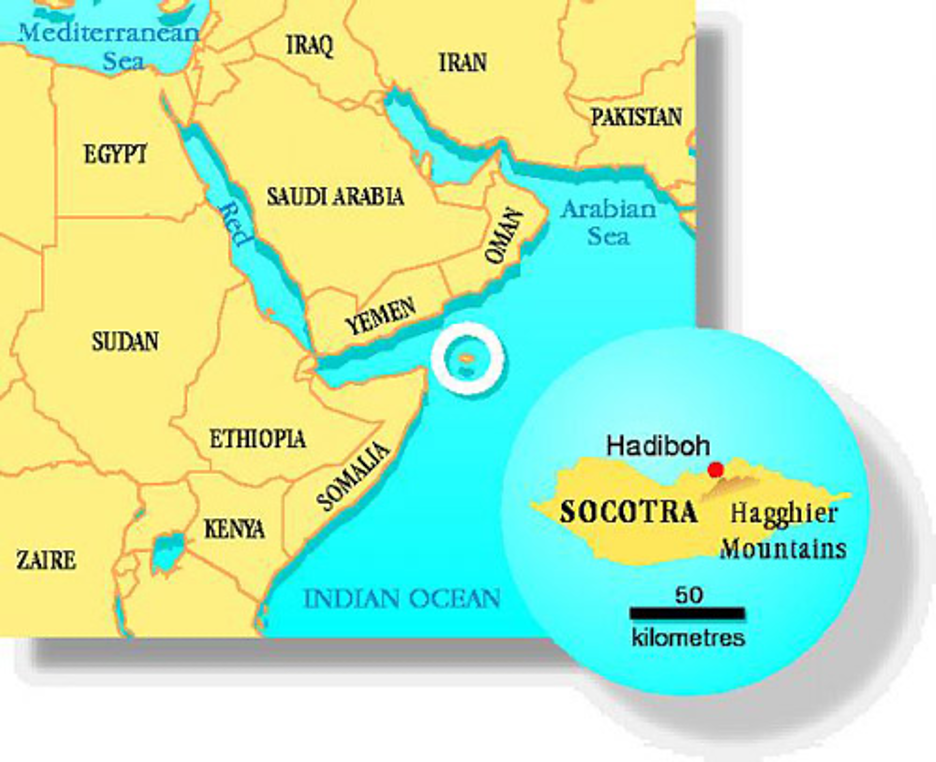
[Source: blogspot.com]
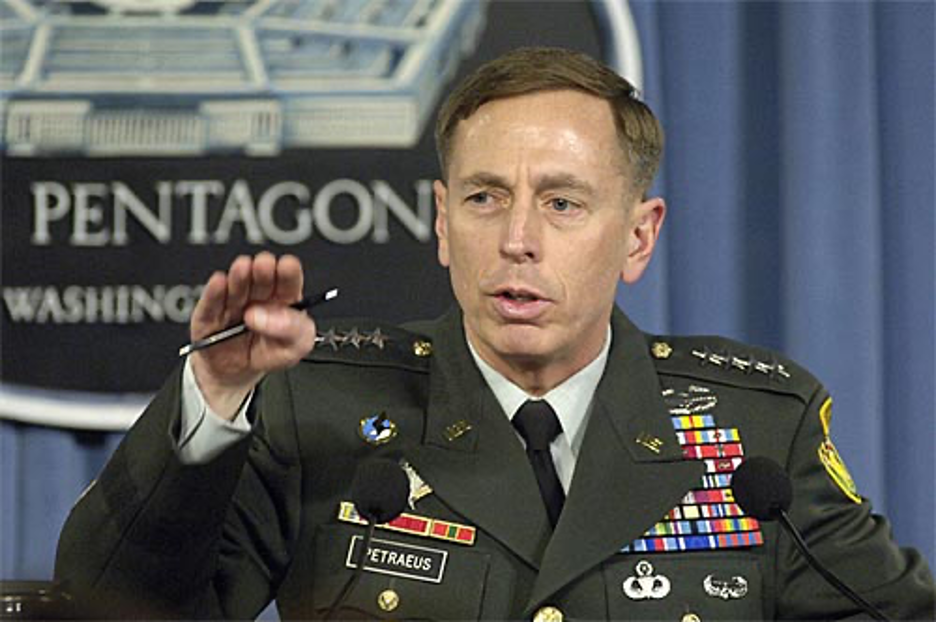
The nefarious nature of the Saudi regime has been exposed with the release of a report stating that U.S. intelligence found that Saudi Crown Prince Mohammed bin Salman ordered the assassination of journalist Jamal Khashoggi. This recent news has amplified calls for Saudi Arabia to be held accountable for its human rights abuses, including its involvement in Yemen, and for the West to stop weapons sales to the Kingdom.
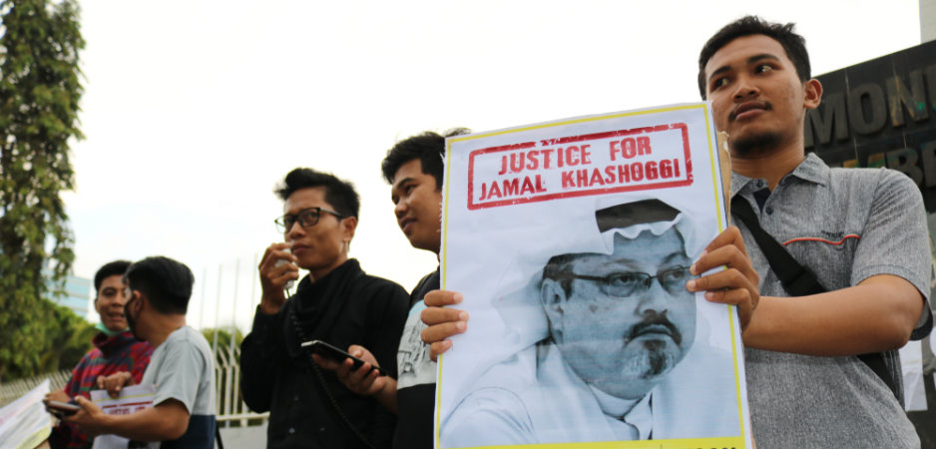
President Biden’s decision to not penalize the Crown Prince was a major blow to human rights activists around the world. The decision may not be surprising, however, considering Saudi Arabia’s strategic value to the U.S., and in the opinion of CovertAction Magazine editors, Biden’s long history of supporting the U.S. overseas empire.
Growing Western Opposition to the War
During Biden’s campaign for President, he pledged to stop supporting the Saudi/Emirati-led aggression in Yemen and to stop selling arms to oppressive regimes such as Saudi Arabia.
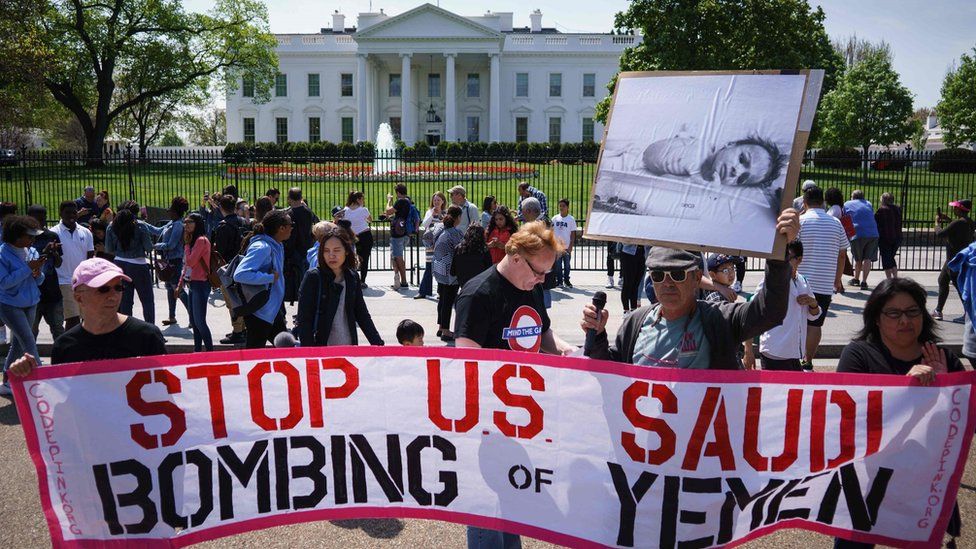
Specifically, he promised to “end U.S. support for Saudi Arabia’s war in Yemen, and make sure America does not check its values at the door to sell arms or buy oil.”
On January 25, 2021, Biden’s first Monday in office, tens of thousands of people around the world participated in online and on-the-ground protests as part of a Global Day of Action: World Says No to War on Yemen.
A total of 385 organizations from 28 countries signed the statement Action Corps circulated calling for the day of action, making this the largest anti-war coordination since the 2003 Iraq war protests. The day of action was a highlight in a multi-year grassroots movement to stop Western backing of the Saudi/UAE-led coalition in Yemen.
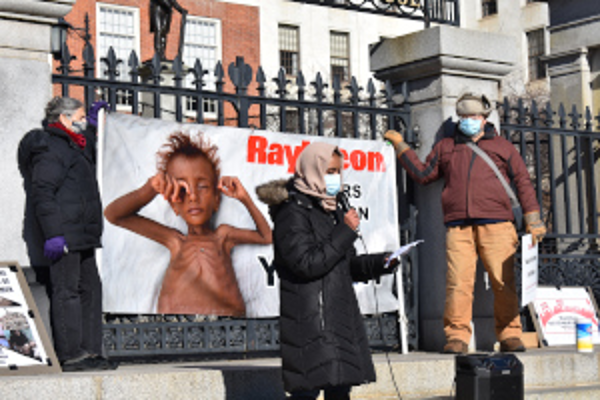
Four demands of 385 organizations from 28 countries:
1. Stop foreign aggression on Yemen.
2. Stop weapons and war support for Saudi Arabia and the United Arab Emirates.
3. Lift the blockade on Yemen and open all land and seaports.
4. Restore and expand humanitarian aid for the people of Yemen.
As a result of years of grassroots organizing, advocacy, and mounting pressure that culminated in the day of action, the Biden administration has announced a number of significant decisions about Yemen. On the day of action, his administration announced they would lift some of the deadly sanctions against the Houthi rebels in Yemen.
Since then, he temporarily paused a number of arms sales to Saudi Arabia, cancelled two planned arms sales, reversed the Foreign Terrorist Organization designation of the Houthi rebels and, in his first major foreign policy speech as President, announced the U.S. would end support for “offensive operations” in Yemen.
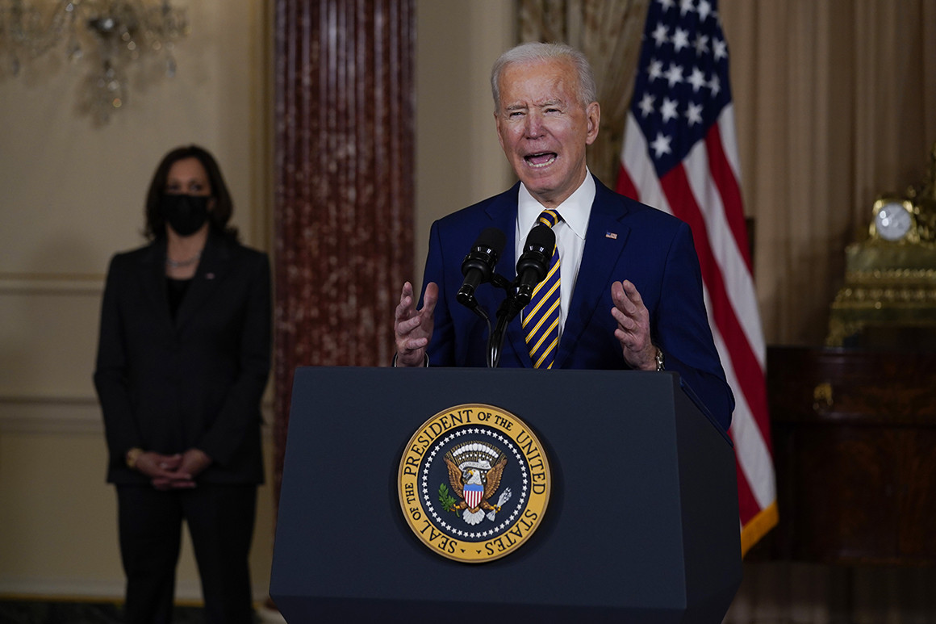
While activists and Members of Congress have rightly demanded clarity about Biden’s policy in Yemen going forward, these announcements reflect years of mobilizing on the part of humanitarians, anti-war activists, constitutional conservatives, libertarians, and anti-imperialists. The President’s statements also represent a tremendous window of opportunity to actually end the war.
In his article, Yemen Can’t Wait: Why a Global Day of Action Has Created a Chance for Change, Chris Nineham explains that a number of factors have made the war unsustainable and unwinnable for Saudi Arabia.
These factors include the high financial cost of the war in the midst of an economic recession, loss of territory to the Houthi rebels, and an increasingly negative opinion of the war on the part of Americans, Brits and Europeans. At the end of January, Italy permanently blocked arms sales to Saudi Arabia and the UAE. A February 11 vote in the EU parliament called on all Member States “to halt the export of arms to all members of the Saudi-led coalition.”
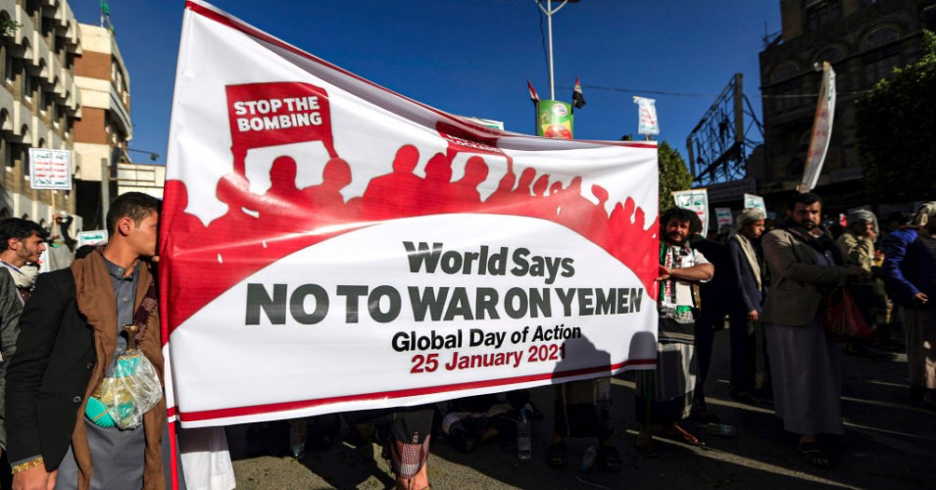
A Window of Opportunity
There is a misconception that Biden’s recent public statements about withdrawing support for offensive operations in Yemen, and halting arms sales, are empty promises. Another equally challenging misconception is that a prompt end to U.S. participation in the war in Yemen is guaranteed. What actually happens will depend in part on U.S. civil society’s advocacy and activism.
Biden’s current position on Yemen, while decrying the war, actually leaves room for an increase in complicity in the crisis, in the name of defending Saudi Arabia.

Rep. Ro Khanna (D-CA) correctly has called for an unconditional end to all weapons sales—both defensive and offensive—including a cancellation of existing arms contracts with the warring parties.
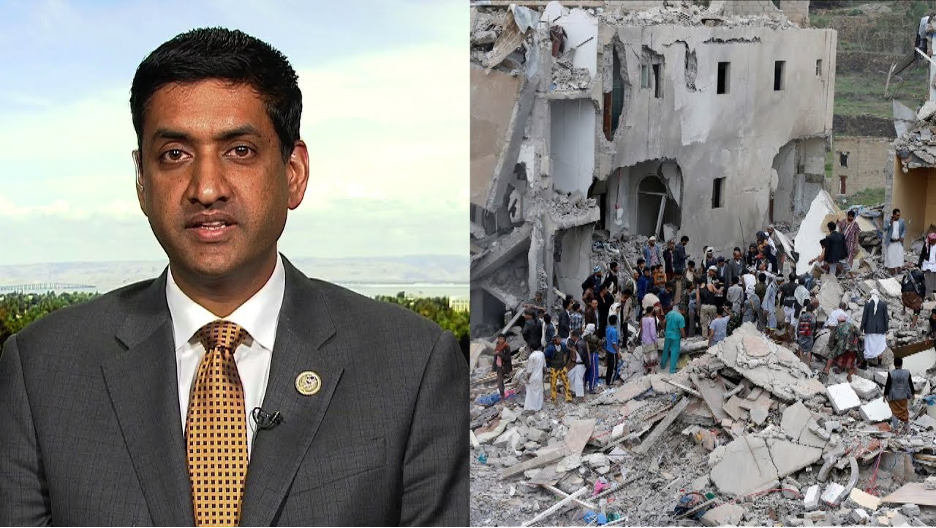
He and other lawmakers have written to Biden to clarify his position on U.S. participation in the war and on arms sales to the Saudi-led coalition. As the Biden administration reviews arms sales to Saudi Arabia and the UAE, it should make good on Biden’s February 4th announcement to end “relevant arms sales” for the war in Yemen.
Congressional War Powers and Oversight of Arms Sales
In the spring of 2019, Congress passed a historic joint War Powers Resolution, ordering the President to withdraw unauthorized forces from involvement in the Saudi/Emirati-led war on Yemen.
President Trump vetoed the bill, refusing to honor Congress’s constitutional authority over involvement in war. The veto of the bipartisan resolution was described by David Miliband, president of the International Rescue Committee, as “morally wrong and strategically wrongheaded.”
Further, House Speaker Nancy Pelosi condemned Trump’s actions to “perpetuate America’s shameful involvement in this heartbreaking crisis.”
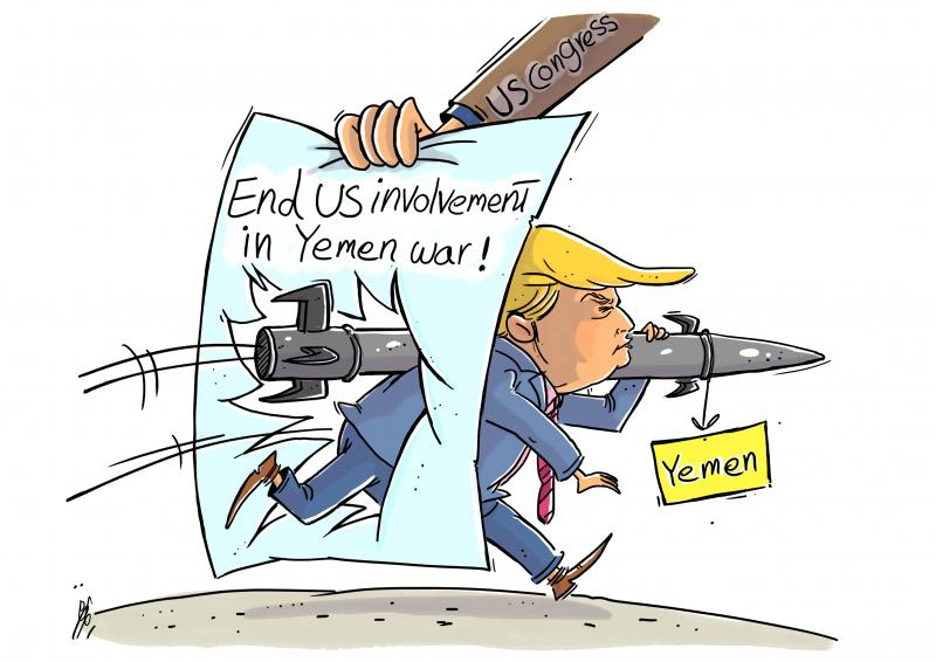
The 2019 Yemen War Powers Resolution, along with widely supported amendments to the National Defense Authorization Acts over the past three years, provided an impetus for Biden to make ending participation in the war on Yemen a foreign policy priority. These historic pieces of legislation to stop the war came about only because of years of tireless activism on the part of Yemeni Americans and their allies.
In light of President Biden’s recent attack on Syria, which again violates congressional war powers, it is clear that Congress must continue to exercise its muscle to ensure a complete and permanent end to U.S. participation in the war on Yemen.
To this end, Congress should ratify an end to military participation in the war in Yemen this year. This should include the original Smith-Khanna-Schiff-Jayapal amendment to the National Defense Authorization Act that would ratify an end to spare parts transfers for the war.
Furthermore, Rep. Gregory Meeks (D-NY), chairman of the House Foreign Affairs Committee, should put out a stand-alone piece of legislation to end weapons sales to Saudi Arabia and the UAE. In the meantime, other members of Congress can co-sponsor his H.J.Res.15 and H.J.Res.16 resolutions opposing certain weapons sales to Saudi Arabia.
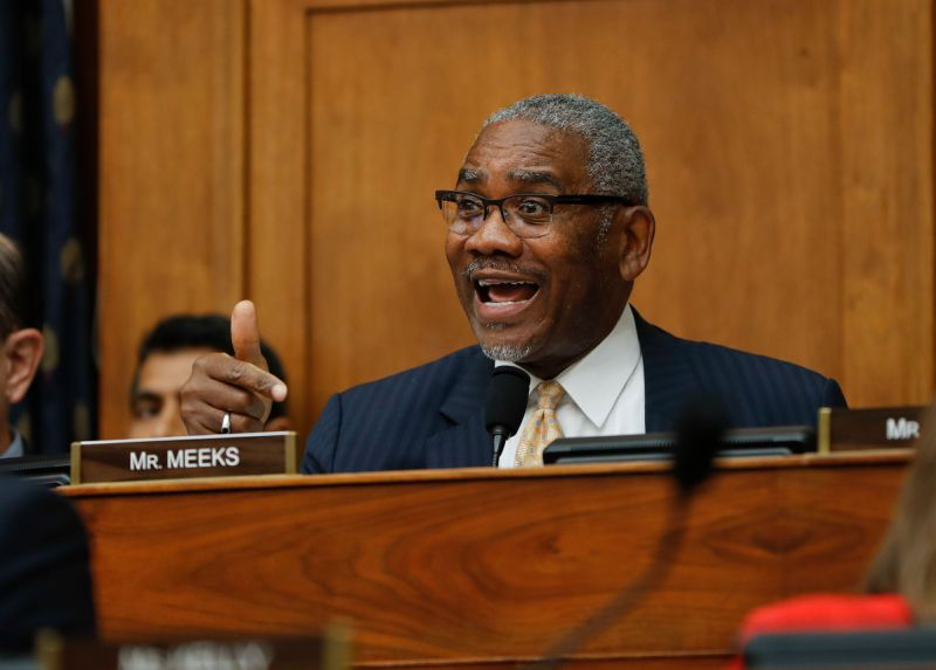
The Blockade: A Silent Killer
The de facto Saudi-led blockade is starving the country and responsible for the bulk of deaths of Yemeni civilians. On March 11, David Beasley, World Food Programme chief, told the UN Security Council, “The people of Yemen deserve our help. That blockade must be lifted, as a humanitarian act.”
Rep. Adam Smith (D-WA), chairman of the House Armed Services Committee, recently said that the blockade is “not something we should be participating in.”
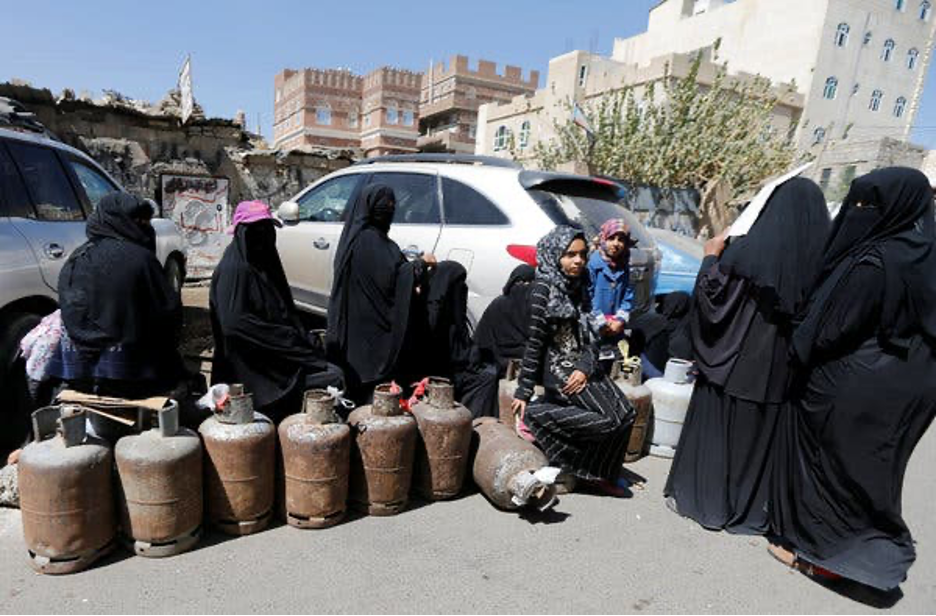
He elaborated that the blockade “would clearly fall under the category of an offensive action.”
Given Biden’s commitment to end all support for offensive operations in Yemen, he should stop backing the blockade and call on the UN Security Council to press Saudi Arabia to lift it.
Thus far, President Biden and Secretary of State Antony Blinken have failed to even acknowledge the blockade, instead putting the onus on the Houthi rebels to resolve the conflict.
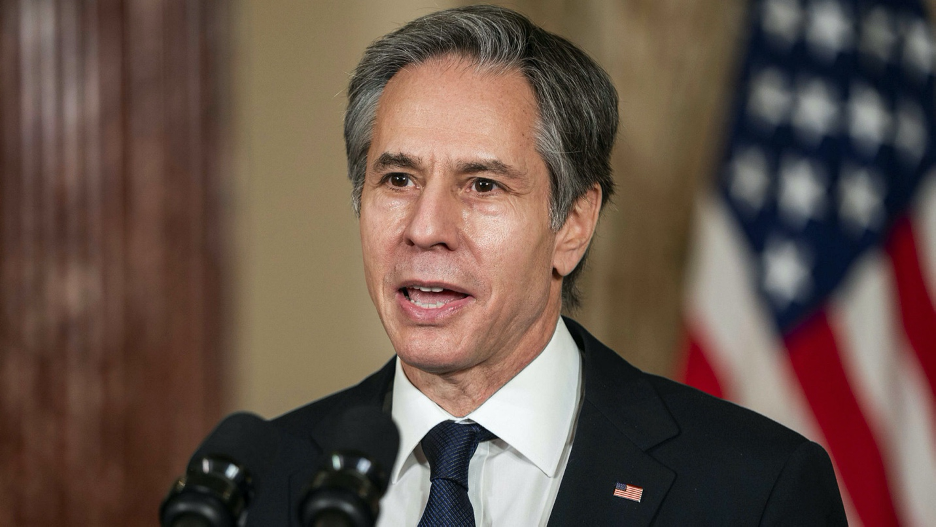
CNN’s Jake Tapper described the U.S. lack of acknowledgment of the full impact of the blockade as “infuriating” during a March 10 report on the crisis. Nima Elbagir, CNN senior international correspondent, speaking of Tim Lenderking, the U.S. special envoy to Yemen, said, “He says the U.S. is committed to push the parties towards peace. How is that possible when you are not acknowledging the full impact of that U.S.-backed Saudi embargo on the people of Yemen?”
According to Bruce Riedel, senior fellow and director of the Brookings Intelligence Project, the Biden administration should “call for the immediate and unconditional end to the blockade and allow civilian traffic to Yemen’s ports and airports.”
A first step to a negotiated peace settlement must be a lifting of the blockade. The Fiscal Year 2021 National Defense Authorization Act, passed by Congress, includes reporting requirements on Saudi Arabia’s de facto blockade of Yemeni air and seaports. Congress must continue to press Biden to use his power to ensure an immediate and unconditional lifting of the blockade.
Riedel and other experts advocate for a new UN Security Council resolution on Yemen, which should mandate a lifting of the blockade. The current resolution, drafted in 2015 by Saudi Arabia, is lopsided in placing responsibility for the war on the Houthi rebels, while saying nothing about the roles of Saudi Arabia, the UAE and their backers.
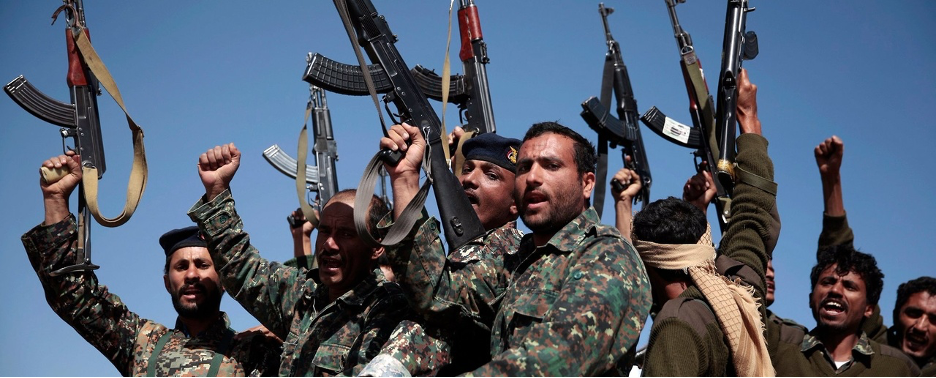
Jamal Benomar, former UN Special Envoy for Yemen, is one of the experts who have called for Washington to promote such a new Security Council resolution to establish “a different structure for a negotiated process that ensures a seat for every side in the conflict.”
“The situation has changed,” House Armed Services Committee Chairman Smith said in a recorded online discussion last month, referring to the difference between now and 2015 when the UN resolution was passed. “I think the UN resolution should recognize that [and] go for a more balanced approach.”
A diverse and informal coalition of U.S. organizations advocating for Yemen has already secured key commitments from Biden, including Action Corps, the Yemeni Alliance Committee, Yemen Relief and Reconstruction Foundation, Bread for the World, Friends Committee on National Legislation, CODEPINK, Demand Progress, Democratic Socialists of America groups, Just Foreign Policy, Win Without War, Chicago Area Peace Action, Massachusetts Peace Action, Peace Action New York State, and others.
Humanitarian organizations such as the International Rescue Committee, Norwegian Refugee Council, and Oxfam America, have also played a critical role. Now is the time to help add specificity to the new Administration’s commitments, and make them reality.
It is time for the U.S. to take responsibility for the devastation of the Saudi-imposed blockade against the Yemeni people, and ensure it is lifted without delay.
Biden was part of the administration that helped start the war on Yemen. Now it is his responsibility to remove the U.S. from the war, press U.S. allies to end the conflict, and secure the provision of funds necessary for the reconstruction of the country.
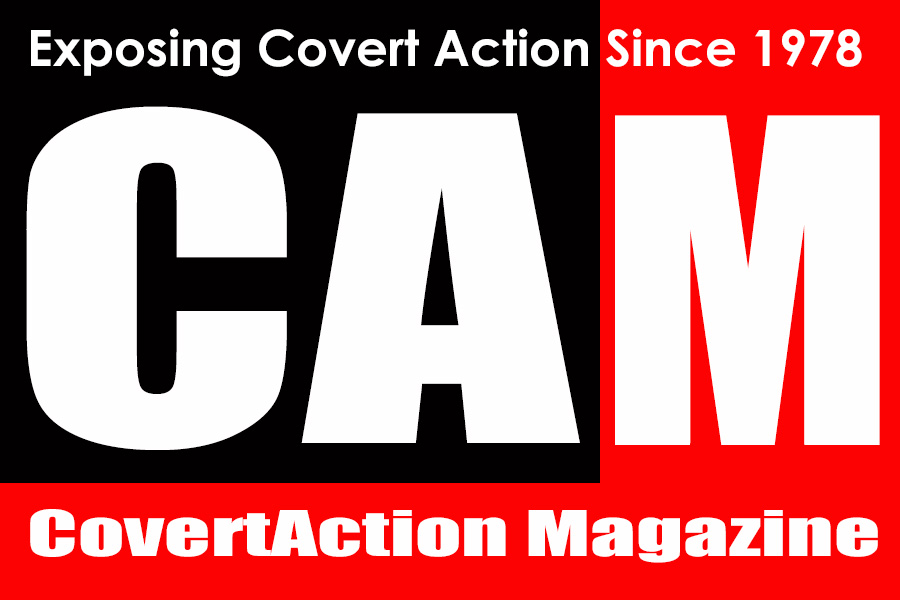
[1] See Peter Dale Scott, The American Deep State: Wall Street, Big Oil and the Attack on U.S. Democracy (New York: Rowman & Littlefield, 2014).
CovertAction Magazine is made possible by subscriptions, orders and donations from readers like you.
Blow the Whistle on U.S. Imperialism
Click the whistle and donate
When you donate to CovertAction Magazine, you are supporting investigative journalism. Your contributions go directly to supporting the development, production, editing, and dissemination of the Magazine.
CovertAction Magazine does not receive corporate or government sponsorship. Yet, we hold a steadfast commitment to providing compensation for writers, editorial and technical support. Your support helps facilitate this compensation as well as increase the caliber of this work.
Please make a donation by clicking on the donate logo above and enter the amount and your credit or debit card information.
CovertAction Institute, Inc. (CAI) is a 501(c)(3) non-profit organization and your gift is tax-deductible for federal income purposes. CAI’s tax-exempt ID number is 87-2461683.
We sincerely thank you for your support.
Disclaimer: The contents of this article are the sole responsibility of the author(s). CovertAction Institute, Inc. (CAI), including its Board of Directors (BD), Editorial Board (EB), Advisory Board (AB), staff, volunteers and its projects (including CovertAction Magazine) are not responsible for any inaccurate or incorrect statement in this article. This article also does not necessarily represent the views the BD, the EB, the AB, staff, volunteers, or any members of its projects.
Differing viewpoints: CAM publishes articles with differing viewpoints in an effort to nurture vibrant debate and thoughtful critical analysis. Feel free to comment on the articles in the comment section and/or send your letters to the Editors, which we will publish in the Letters column.
Copyrighted Material: This web site may contain copyrighted material the use of which has not always been specifically authorized by the copyright owner. As a not-for-profit charitable organization incorporated in the State of New York, we are making such material available in an effort to advance the understanding of humanity’s problems and hopefully to help find solutions for those problems. We believe this constitutes a ‘fair use’ of any such copyrighted material as provided for in section 107 of the US Copyright Law. You can read more about ‘fair use’ and US Copyright Law at the Legal Information Institute of Cornell Law School.
Republishing: CovertAction Magazine (CAM) grants permission to cross-post CAM articles on not-for-profit community internet sites as long as the source is acknowledged together with a hyperlink to the original CovertAction Magazine article. Also, kindly let us know at info@CovertActionMagazine.com. For publication of CAM articles in print or other forms including commercial internet sites, contact: info@CovertActionMagazine.com.
By using this site, you agree to these terms above.
About the Author

Ellie Baron is the lead organizer of Action Corps NYC, one of several grassroots teams across the United States advocating for justice in solidarity with the people of Yemen and other places affected by disasters.

Isaac Evans-Frantz is the Executive Director of Action Corps.
You can find him on Twitter at @iefrantz.
He can be reached at: isaacef@yahoo.com.

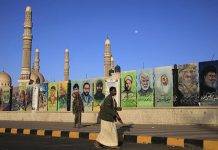
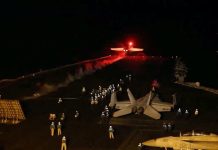


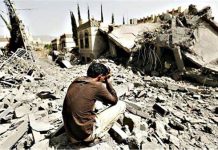

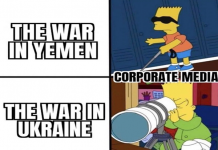
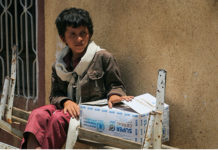

The halting of military aid to Saudi Arabia is a major step forward in addressing the humanitarian crisis in Yemen. But there are still many more great obstacles to overcome. It will be very difficult to get the Houdhis to agree to a ceasefire and come to the negotiation table. They are an extremely violent group who are very anti-american and anti-semetic. Indeed anti-semetism is a major part of their ideology and belief system. So there is still a great deal of work required to bring peace and humanitarian aid to the country.
[…] Via CovertAction Magazine […]